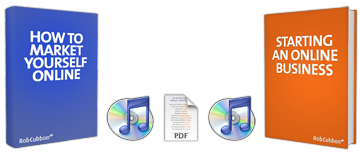I’m a lucky guy. I’ve not had a proper job for many years. I work when I want, on what I want and from where I want.

I love to meet entrepreneurs and business people. I’ve met thousands over the years on many different stages of the journey. What separates the successful form the ones who admit they’re struggling? That’s what I’m always asking myself.
How not to do it
Here are some of the business models I come across recently:
- Creating multiple Kindle books in multiple niches with multiple ghost writers
- Selling t-shirts on TeeSpring through Facebook ads
- Creating a drop shipping website and selling through Google or Facebook ads
- Making a quick buck with the latest shiny object
There isn’t anything inherently wrong with the above four online practices. However when I meet people doing the above, they don’t strike me as particularly successful. There’s no underlying usefulness in what they’re creating – no useful website where people will want to go and ultimately buy more.
A clear purpose and a brand
How can we make sure we don’t chase the shiny objects and create a solid base to our businesses? I think this is what we must do: make sure we have clear personal and business purposes: goals to create something that will benefit people. When I shifted from wanting to make money to wanting to help people, things got simpler. And better.
I often get this wrong. I often find myself frustrated, worried and chasing financial returns. But I try to keep my eye on the ultimate goal.
For me, the ultimate goal is to create one branded, authority website with loads of great, free content that will help people. If you have this, you will be successful online.
Should the brand be personal or not?
What domain should you choose? Should it be like mine, RobCubbon.com, and brand the website with your first and last name? Or should you pick keywords that describe your content, for example SmartPassiveIncome.com? Or should you choose random catchy words, like ViperChill.com? Or a combination or the above?

It’s a difficult question. The personal website brand is certainly the easier solution: the internet is set up to create a personal brand with a real name. You can have a Gravatar, personal social media profiles (Facebook, Twitter, Instagram, LinkedIn, etc.), forum profiles, as well as profiles on other platform such as Amazon and Udemy, all with your name and profile image, al linking back to your site of the same name. This instantly creates a recognisable brand on your site and wherever you go online.
People like people and find it easier to identify with a human being than they do with a faceless business brand.
But branding yourself may not be the best idea in the long term. As your business matures, you will delegate more to your team. This delegation will include content creation and other tasks central to the brand. At this point, is the personal branding serving you or holding you back? Can you sell the brand when you retire? There is no right or wrong answer here.
Create a channel of communication between you and the audience
Your brand’s content, if it’s any good, will inspire discussion, praise and criticism. It’s all good. Engage with it.
Listen to the feedback. Respond to the comments on your blog, respond to feedback on social media, respond to emails you get from the brand audience. This feedback is both free and priceless at the same time. It’s market research. It’s your customers telling you what they want.
The most powerful way to do this is by keeping an email database of subscribers and customers (and having their permission to mail them).
Regular creation of quality content
The best way to grow your brand’s reputation for usefulness is through constant creation of quality, relevant content. Dan Norris established his brand WPcurve as an authority in it’s field by writing over 200 articles in its first two years. WPcurve now makes $20,000+ monthly recurring revenue.

Facebook, Amazon Kindle, YouTube, Udemy, Twitter … all great places to build your brand. But don’t forget the most important place: your website. Put your best content there.
Consistency
Brands by their very nature should be consistent. So, blog consistently, email subscribers consistently, continue to create products of a consistently high quality. The audience will associate usefulness from your brand. Consistent value turns your audience into customers.
How to do it right
Let’s take our examples at the top of this article. How can we improve them?
- Creating multiple Kindle books in the same niche and directing readers back to a branded website and collecting email addresses
- Selling t-shirts on tee-spring and directing customers back to a branded website and collecting email addresses
- Creating a drop shipping website and develop authority by blogging from the same site and collecting email addresses
- Not being tempted by making a quick buck with the latest shiny object but, instead, concentrating on developing the usefulness of a branded business asset
You can do it
You can create authority by developing a brand over time. It does take consistent effort. But you will see benefits surprisingly quickly.
What do you think about this? Is it aligned with your business vision? Or is it too obvious? I’d love to hear your feedback in the comments.

Hi 🙂
Great post 🙂 I really enjoyed reading it. I agree with You, becouse I was in the same situation, I was trying to find a thing that will bring me money quickly and I wasn’t thinking about giving others something high valuable. But after these mistakes I’ve changed my approach for better 🙂
I’ve certainly made mistakes like that in the past, Iza. I’m so glad you enjoyed reading it.
Another insightful and informative article! The typography and design you are using these days is beautiful, too.
I’m taking paid training for my network marketing business, from a husband-and-wife team who are self-made millionaires. Among their biggest tips is that your business will come from:
People who know you.
People who like you.
People who trust you.
That’s why to be (as your article advises) very careful how you communicate information and recommendations. And to disclose that you are in business to earn money, which you do by contributing to others.
Thank you, Theron, I’m glad you found the article useful. The typography comes from the theme I customized the Magazine Pro theme on Genesis (they are affiliate links). Likewise, it’s always good to say when the links are affiliate links. It builds trust.
Thanks again for your insights. Trust is so important.